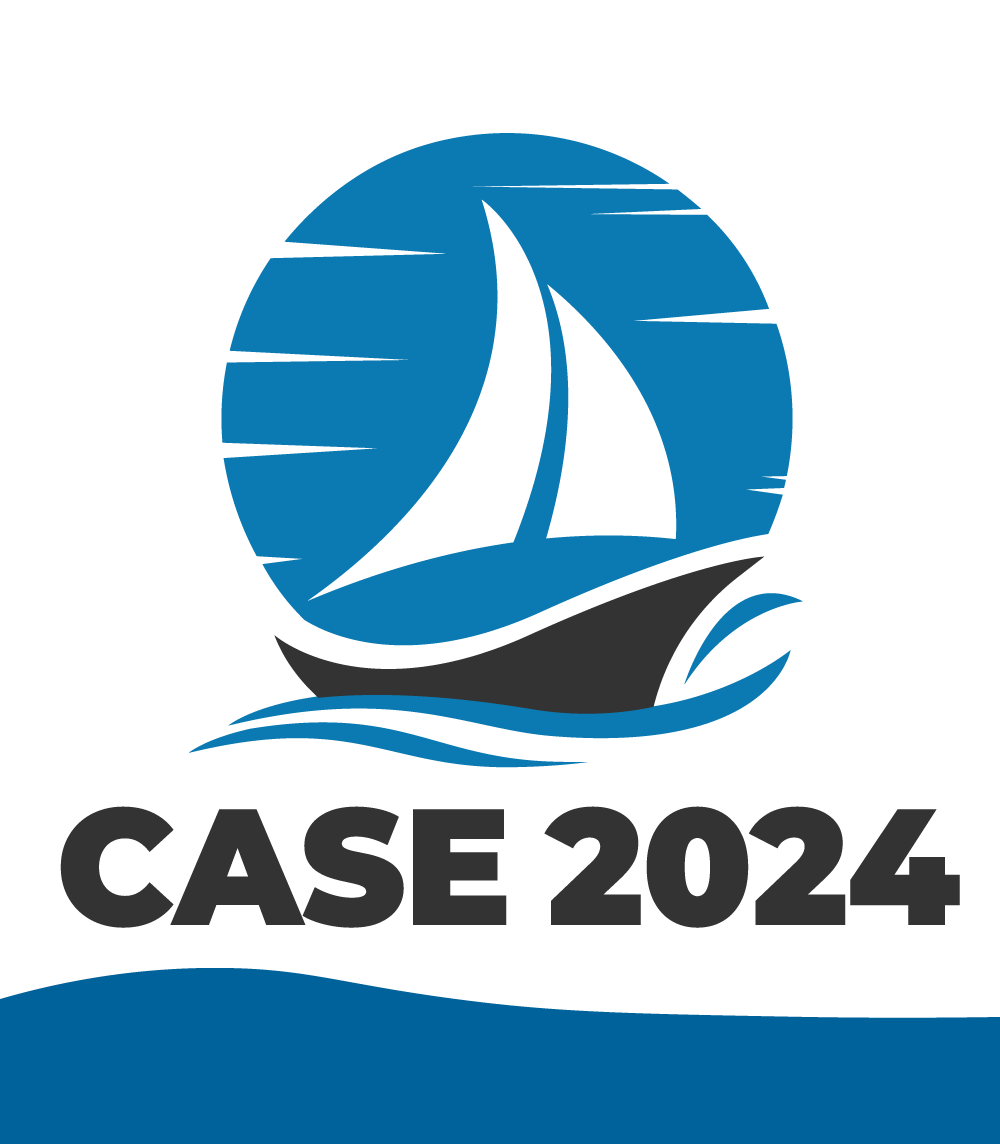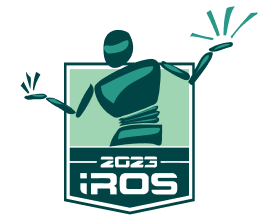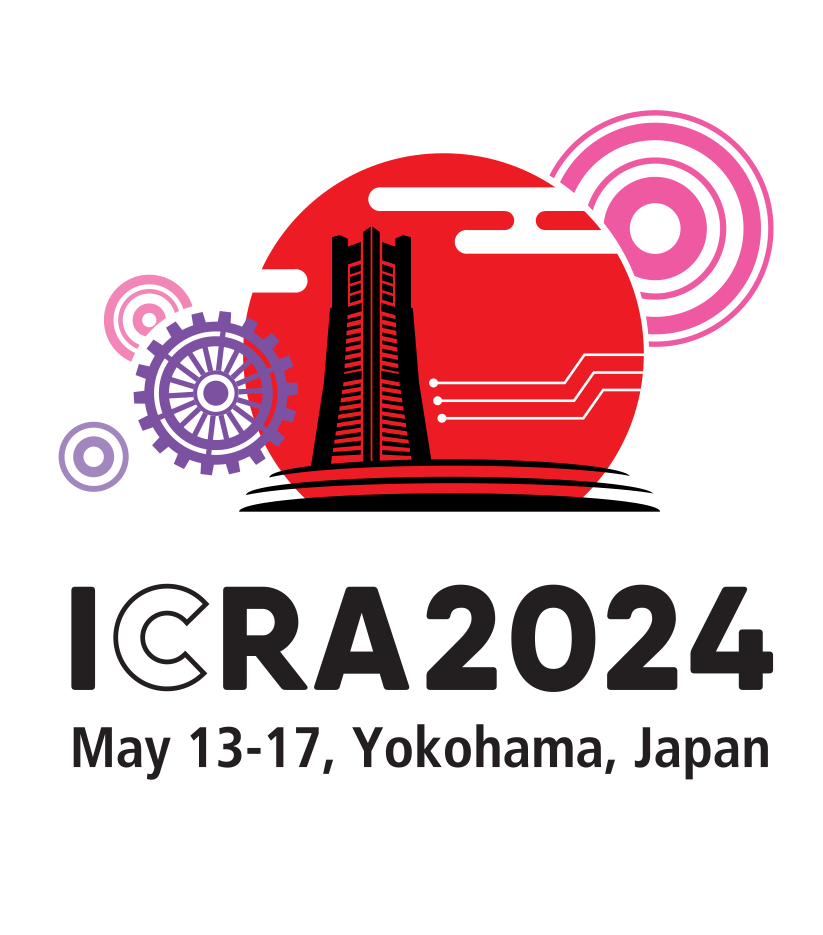Latest News
FORGET THE ROBOT SINGULARITY APOCALYPSE. LET'S TALK ABOUT THE MULTIPLICITY

The robot revolution we are in the midst of is actually way more interesting. Goldberg calls it the multiplicity. “Multiplicity is not science fiction,” he says. “It's something that's happening right now, and it's the idea of humans and machines working together.” So welcome to the future, where robots do things like gently hand us screwdrivers instead of stabbing us with them.
Read the full artcle here: https://www.wired.com/story/forget-the-robot-singularity-apocalypse-lets-talk-about-the-multiplicity/
RAS SIGHT projects are not only providing humanitarian assistance, but are also highly regarded and recognized by the community!
The project “Enhancing the Speak Up! Suite of Voice Powered Games,” was completed by Amal Nanavati, M. Bernardine Dias, & Aaron Steinfeld, Carnegie Mellon University (PA), USA. It was created to support and train the deaf community in developing areas of the world. The “Speak Up! suite of voice-powered games” includes activities where, for example: student voice propels a vehicle forward, students vary their volume to move a bird up and down, and student voice gradually reveals a flashcard. The games have been in use at a school for the deaf in India for over 2 years. In this project, the team conducted fieldwork to understand the strengths and shortcomings of these games and further improve upon them.
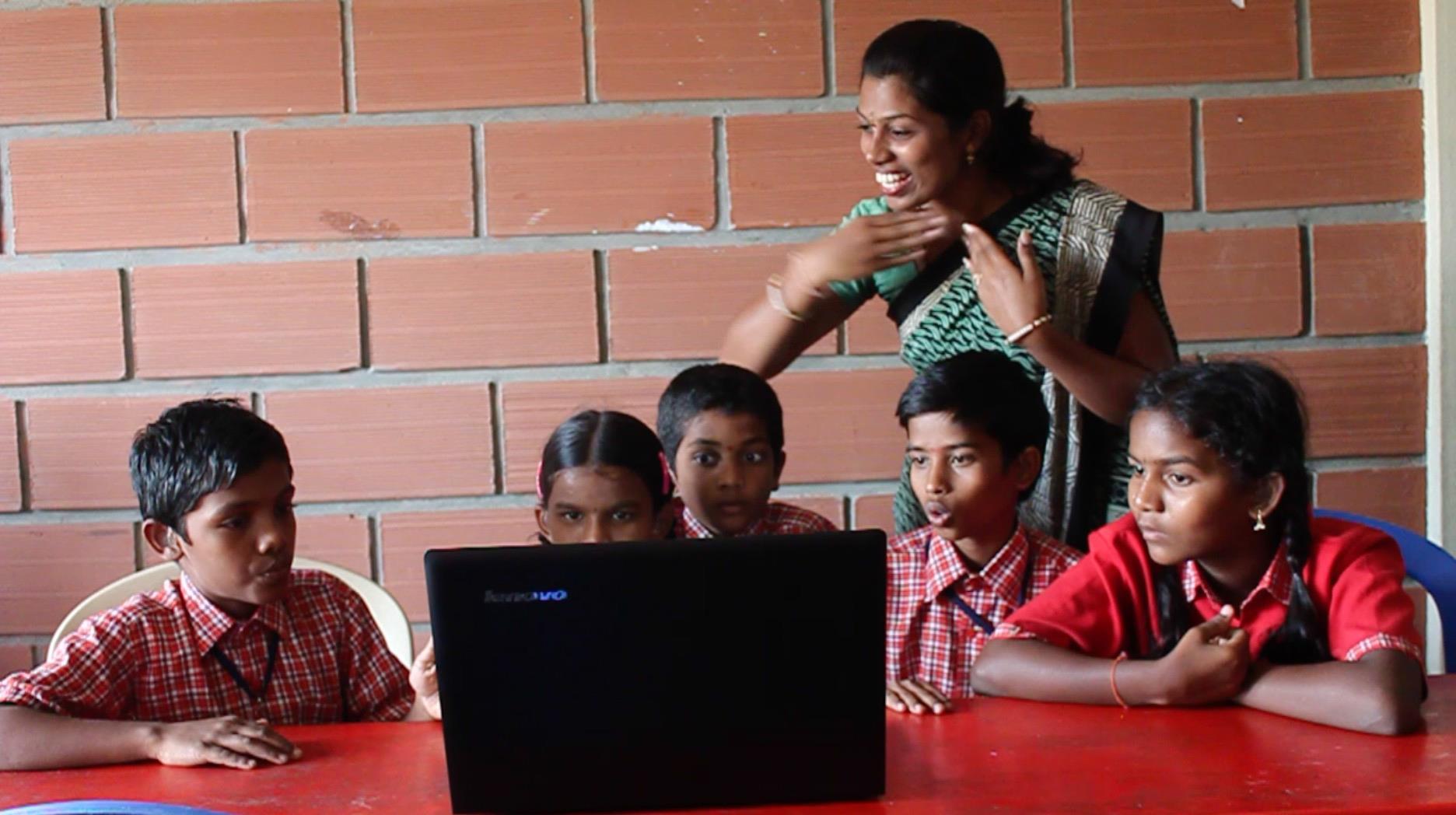
Project Lead, Amal Nanavati recently presented “Speak Up” at the 2018 CHI Conference on Human Factors in Computing Systems (paper here), as well as Carnegie Mellon's undergraduate research symposium. The project was fortunate to receive two awards at the research symposium:
The Osher Lifelong Learning Institute's award for "Best Multi-Year Project," which awards projects that have "positive impacts on individuals' quality of life and health."
The Dietrich Humanities Prize, which awards projects that "best exemplify the humanities as they are understood at Carnegie Mellon."
Biographical Information
Amal Nanavati recently received a B.S. from Carnegie Mellon University with a double major in Computer Science and Global Studies. In addition to robotics research, he spent his time outside of class teaching Computer Science at under-resourced Pittsburgh K-12 schools through Teknowledge, a student organization which he co-founded and led. He will be spending the next year as a Fulbright Fellow in Japan, doing research in robot learning from observation under the guidance of Dr. Takayuki Kanda at Kyoto University. After that, he will begin a PhD in Computer Science and Engineering at the University of Washington in Seattle.
Community Partner Information
The Mathru Educational Trust for the Blind is a nonprofit, founded in 2001 by Ms. Gubbi R. Muktha. Ms. Muktha had been in an unfortunate road accident in 1986, which resulted in losing mobility for almost three years, during which she regularly visited the Vocational Rehabilitation Centre of the Disabled in Bangalore. At the rehabilitation centre Ms. Muktha came into contact with many blind people, who were struggling with mobility and were extremely dependent on family and friends. She was moved. In her own words, “Just because a child is blind does not mean he or she should become a burden to their family and society. Just because a child is blind does not mean they are worthless. They have so many other strengths and talents which can be harnessed for their benefit and for the benefit of their family and society. I realized that God had a bigger plan for me.” In 2001, she founded the Mathru Educational Trust for the Blind with the original goal of creating a residential school for blind children in and around Bangalore. The Mathru Educational Trust has since expanded, and it now runs two residential schools for disabled children and countless other charitable projects. The site of this project was the Mathru Centre for the Deaf and Differently-Abled, which was established in 2012 to serve students with hearing impairments and multiple disabilities. Learn more about all the Mathru Educational Trust’s projects at http://www.mathrublindschool.org/
The IEEE Robotics & Automation Society is seeking qualified recipients for prestigious awards!
The Nomination Deadline is Wednesday, 1 August.

Who are Leaders in the robotics and automation field? Who should be honored with a prestigious IEEE RAS Award? Consider nominating them! But hurry, the deadline for IEEE Robotics & Automation Society Award nominations is midnight (US EST) 1 August 2018.
Details for each award, including eligibility, nomination requirements and lists of previous recipients, may be found here:
www.ieee-ras.org/awards-recognition/society-awards
2nd Call for Participation:
Entrepreneurship Forum and Startup Contest (EFSC 2018) in conjunction with the IEEE/RSJ International Conference on Intelligent
Robots and Systems (IROS 2018)
3 October 2018
Madrid Municipal Conference Centre
Madrid, Spain
Purpose of the Event
Robotics are on the verge of a new area. While at the beginning of this millennium, robots that were design to serve humans in their daily life, were still exotic niche products. Twenty years later, new service robot applications are breaking their way into the market almost weekly. It is not the traditional robotics industry, however, which drives this development. It is startups and small companies who play the icebreaker and take all the risk that comes with creating a new market.
To foster that entrepreneurial spirit and to provide a platform to encourage researchers and practitioners to transition ideas and prototypes to commercializable products, the IEEE Robotics and Automation Society (IEEE RAS) invites the robotics and automation community to participate in an Entrepreneurship Forum and Start-up Competition (EFSC) at the 2018 IEEE/RSJ International Conference on Intelligent Robots and Systems (IROS2018) in Madrid, Spain.
The event is intended to inspire, educate, enable, and empower researchers, students, young professionals, and anyone else who has the 'start-up bug' in starting companies of their own but is not sure of how to go about it. We also believe that this event will create an ecosystem that will provide the much-needed support for start-ups to launch their initiatives while being realistic about their envisioned ideas and products.
Organizers
Erwin Prassler (H-BRS/runfun, IEEE RAS past VP for Industrial Activities)
Fabio Bonsignorio (Heron robots)
Renaud Champion (Primenext)
Jon Agirre Ibarbia (Tecnalia)
EFSC at IROS'18 Consists of Three Stages
- In the first stage, submitted applications will be down-selected to arrive at a pool of qualified applicants based on a defined set of criteria developed by the organizers (see 'Application Form' information below).
- This will be followed by a remote stage where the selected applicants will be paired with coaches based on the proposal content and the expertise of the coaches. The coaches will then critique, and provide technical and professional assistance to refine the idea/product
pitches.
- The final stage would allow for the refined pitches and content to be presented in front of a distinguished panel of venture capitalists, industry, and academic experts who have successfully funded, transitioned and have experience in commercialization of robotics and automation technologies.
Who Can Participate?
Anyone with an idea utilizing robotics and/or automation technology that has reached a proof of concept level is welcome to submit an application provided the entity is 1) less than 3 years old, and 2) has not received a total funding larger than 500 KEUR since its inception.
How to Participate?
Interested applicants should complete the Application Form available for download from here: PDF, MS Word.
Please email completed forms to efsc@iros2018.org.
Travel Support and Awards
We will provide travel support for all qualified applicants invited to IROS'18. Teams from Europe will be eligible to a 750 EUR travel grant, teams from overseas will be supported with a 1500 EUR grant. In addition there will be a financial award for the top three finishers (pending funding approval at the time of this Call). Qualified applicants will further receive a free mini-booth in the IROS'18 exhibition area for an interactive presentation of their product (idea).
Important Dates
Submission of Application Forms: 30 June 2018
Announcement of Selected Applicants: 31 July 2018
Coaching on demand: August 2018
Final Presentations at IROS'18: 3 October 2018
More Information
Is available here: https://www.iros2018.org/efsc2018
IEEE Robotics & Automation Magazine is soliciting nominations for two new Associate Editors, to begin in January 2019. The Associate Editors play an important role in maintaining the caliber of the magazine by ensuring the quality of published articles by implementing reviews of technical features according to IEEE guidelines, soliciting interesting and topical material articles for publication in the magazine, guiding the overall direction of the publication and providing feedback from the readership through e-mail conversations, teleconferences, and twice-yearly in-person meetings held in conjunction with IEEE Conference on Robotics & Automation (ICRA) and the IEEE International Conference on Intelligent Robots and Systems (IROS).
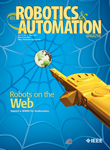
Associate Editor terms normally consist of a one-year probation period followed by two years of additional service if performance is satisfactory. Applicants should have a strong technical background and excellent English language skills.
Nominations
Nominations should include a resume (not to exceed three pages), previous experience with publications as a reviewer or in other capacities, and areas of technical expertise. Please submit nominations as a single pdf file to IEEE Robotics & Automation Society at ras@ieee.org by 1 September 2018.
Minesweepers: Towards a Landmine-free World
Outdoor robotic competition on humanitarian demining
2-5 October 2018 in Madrid, Spain
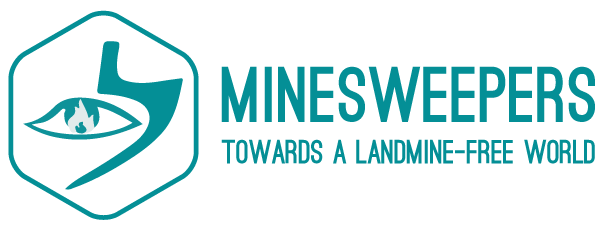
Civilian-purpose demining or humanitarian demining aims at finding and removing abandoned landmines without any hazard to the environment. While classic landmine detection and neutralizing technologies remain almost the same, the landmine technology improved dramatically. The conventional detection methods make the procedure of removing great numbers of landmines very slow, inefficient, dangerous and costly. Robotics systems can provide efficient, reliable, adaptive and cost effective solution for the problem of landmines and the unexploded ordnances (UXOs) contamination.
Minesweepers: Towards a Landmine-free World is an outdoor robotic competition that aims at raising the public awareness of the seriousness of the landmines and UXOs contamination and fostering robotics research and its applications in the area of humanitarian demining in the world. In this competition, each participating team constructs a teleoperated/autonomous unmanned ground/aerial vehicle that must be able to search for underground and aboveground anti-personnel landmines and UXOs. The position and the type of each detected object are visualized and overlaid on the minefield map. The robot must be able to navigate through rough terrain that mimics a real minefield.
The 7th edition of Minesweepers competition will take place in conjunction with the 2018 IEEE/RSJ International Conference on Intelligent Robots and Systems (IROS 2018) in the beautiful city of Madrid, Spain.
The ultimate goal of the Minesweepers competition is to put into practice the new strategic mission of IEEE, “…to foster technological innovation and excellence for the benefit of humanity” and to serve as an educational and a research forum to provide efficient, reliable, adaptive and cost-effective solutions for the serious problem of humanitarian demining in many affected countries in the world. The competition also motivates the participants to create new companies and industries geared towards minefield reconnaissance and mapping technologies. Moreover, the applicability of the robotic systems presented in this competition can be extended to a wide range of other applications such as security and surveillance, search and rescue, health monitoring of civil infrastructure, pipeline monitoring, and environment monitoring.
For more information, please visit:
http://www.landminefree.org/ http://www.landminefree.org/
https://www.facebook.com/LandmineFreeWorld
https://www.youtube.com/watch?v=0u6vh_waukE
The 2018 RAS Town Hall Program will be held on Thursday, 24 May 2018 from 16:30-17:30 in the
Great Hall Auditorium, at ICRA - Brisbane Convention & Exhibition Centre, Australia. We hope to see you there!
Theme
Meet IEEE and RAS Leadership
Where are we now, and what are our strategies for future growth and services? How will IEEE Membership, Publications, Conferences and Events, and Technological Advances impact and influence our business?
Hear from IEEE and RAS Leadership as they describe IEEE and RAS in 2018, and where they see the Organization in 2025 and beyond.
Panelists from IEEE
Jim Jefferies, President, IEEE Board of Directors
Mary Ward Callan, IEEE Technical Activities Managing Director
Panelists from RAS
Wolfram Burgard, RAS President
Torsten Kroeger, Vice President of RAS Conference Activities
Zhidong Wang, Vice President of RAS Electronic Products and Services
Yasushi Nakauchi, Vice President of RAS Financial Activities
Dominik Boesl, Vice President of RAS Industrial Activities
Nancy Amato, Vice President of RAS Member Activities
Eugenio Guglielmelli, Vice President of RAS Publication Activities
Lianqing Liu, Vice President of RAS Technical Activities
Panel Discussion, followed by Questions from the Audience
Your suggestions and ideas can help to guide our progress forward!
Questions can be submitted in advance using this form:
https://app.smartsheet.com/b/form/0290b860312a4af3b254fcc794824995
RAS is pleased to arrange several Networking Events for our Members attending ICRA 2018 in Brisbane, Australia from 21-25 May 2018. Mark your calendars, and register in advance to secure a spot in these highly popular activities.
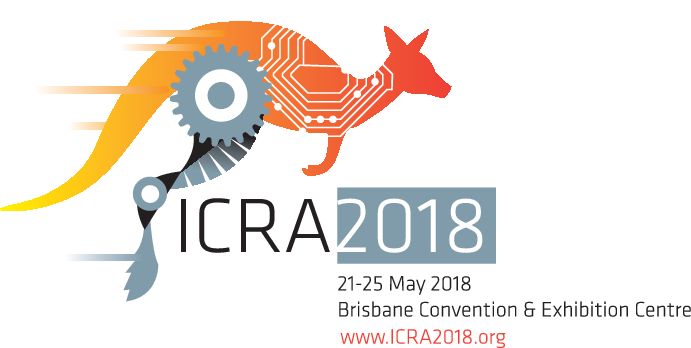
Photo Scavenger Hunt
Are you a student planning to attend ICRA 2018 in Brisbane, Australia? Join the IEEE RAS Student Activities Committee for a fun scavenger hunt! Teams of 2-3 students will be emailed a super top secret list of objectives on the morning of 21 May. Throughout the conference, teams will then take pictures demonstrating they achieved each objective - ranging from shaking hands with RAS leadership, visiting local sights near the conference venue, to doing funny poses. Awards will be presented to teams which found the most items and teams with the most creative photos!
Who: Students attending ICRA 2018
What: A fun picture scavenger hunt
When: 21-25 May 2018
Where: ICRA in Brisbane
Why: Because everyone needs a little fun!
If you already know a few other students attending, you can form a Team and register as a group. If not, please register yourself, and we will team you up with other enthusiastic roboticists. See you in Brisbane!
Register here: https://app.smartsheet.com/b/form/0cb766c0756a4684a0b03d719e45f32e
RAS Women In Engineering (WIE) Luncheon
Tuesday, 22 May 2018 from 12:30-14:00
Room P9, Brisbane Convention & Exhibition Centre, Australia
The luncheon provides the opportunity to foster discussion on the role of women in robotics and automation, inspire girls and promote collaborations and initiatives to advance women in leadership. As the goal for this event is to be more than a lunch for women, but a lunch with women. Therefore, men are more than welcome to participate and enjoy the discussion.
Space is limited, so please register in advance!
https://app.smartsheet.com/b/form/8936d4d5e74a45b7ad9d0cec90675d7c
NETWORKING RECEPTION: Meet the RAS Technical Committees
Tuesday, 22 May 2018 from 17:00-18:30
Room TBD, Brisbane Convention & Exhibition Centre, Australia
This event is open to attendees in the early stages of their career — young professionals and researchers. Chairs and Co-Chairs of the RAS Technical Committees will be available for informal conversation centered on new technologies in robotics and automation, future growth in the field, and how to get involved and contribute to RAS Technical Committee work.
Refreshments will be served! Come enjoy a snack and beverage, and meet some new colleagues!
Space is limited, so please register for this FREE networking event on-line:
https://app.smartsheet.com/b/form/8936d4d5e74a45b7ad9d0cec90675d7c
RAS LUNCH WITH LEADERS (LwL)—for Students
Wednesday, 23 May 2018 from 12:30-14:00
Room P9, Brisbane Convention & Exhibition Centre
This luncheon is open to student and young professional attendees offering the chance to meet and interact with Leaders from RAS and industry. Informal discussion over lunch will take place round table style. Join us for career advice, insights into where the field is headed, or general conversation to get to know Leaders in the field of robotics and automation.
Confirmed RAS Leaders include: Wolfram Burgard, Torsten Kroeger, Venkat Krovi, Yasushi Nakauchi, Zhidong Wang, Vijay Kumar, Tony Maciejewski, Satoshi Takodoro, Seth Hutchinson, Raja Chatila, Nancy Amato, Peter Corke, Hong Zhang, Jaydev P. Desai, Jing Xiao….
Space is limited, so please register in advance!
https://app.smartsheet.com/b/form/8936d4d5e74a45b7ad9d0cec90675d7c
Congratulations and welcome to the following newly organized IEEE Robotics and Automation Society Section and Student Branch Chapters.
Region 8
Spain
- University of Alicante Robotics and Automation Society Student Branch Chapter in the Spain Section
Tunisia
- National School of Electronics and Telecommunications (ENET'Com) Robotics and Automation Society Student Branch Chapter in the Tunisia Section
United Arab Emirates
- United Arab Emirates Section Jt. Chapter, EMB18/CS23/RA24
Region 9
Bolivia
- Bolivian Catholic University - Cochabamba Robotics and Automation Society Student Branch Chapter in the Bolivia Section
Colombia
- University Francisco Jose de Calda - Bolivar Robotics and Automation Society Student Branch Chapter in the Colombia Section
Nicaragua
- National University of Engineering Robotics and Automation Society Student Branch Chapter in the Nicaragua Section
Region 10
Bangladesh
- University of Dhaka Robotics and Automation Society Student Branch Chapter in the Bangladesh Section
India
- Kongunadu College of Engineering and Technology Robotics and Automation Society Student Branch Chapter in the Madras Section
Pakistan
- University of South Asia Robotics and Automation Society Student Branch Chapter in the Lahore Section
A Roboticist, Ethicist and Novelist Walk Into a Bar: IEEE TechEthics Panel at SXSW
About the Talk: How do we separate science fact from science fiction? What is the reality of where we truly are with robotics and AI capabilities? How do media portrayals shape our opinions on technology? And how are the ethical and societal implications of technology considered in each realm? In this panel discussion, a roboticist, an ethicist, and a graphic novelist discuss their roles in the messaging around technological advancements. Part of the IEEE Tech for Humanity Series at SXSW 2018.
Panelists
STEPHEN CASS - Editor, IEEE Spectrum
RYAN JENKINS - Philosophist, Cal Poly
LYNNE PARKER - Robotist, The University of Tennessee
ROBERT VENDITTI - Author
View the recorded session here: https://ieeetv.ieee.org/technology/a-roboticist-ethicist-and-novelist-walk-into-a-bar-ieee-techethics-panel?rf=channels%7C100&
Ethical Considerations 200 Years After Frankenstein
Live Broadcast: Tuesday, 1 May 2018
Time: 12:00 pm - 1:00 pm EDT (GMT-4)
Two centuries after the publication of Mary Shelley's Frankenstein, society continues to explore the ethical implications of technological advancements. This panel brings together voices from technology, ethics, and history to discuss questions about how ethical considerations have evolved in the last two centuries.
How have technologists and others addressed the issues presented in this classic novel? To what extent are the issues raised in the book still present and relevant in today's technology space? What new issues have surfaced with the advent of new technologies?
Speakers
Peter Asaro | Associate Professor of Media Studies, The New School
Dominik Boesl | Vice President of Consumer Driven Robotics, KUKA Robotics
Jean Kumagai | Senior Editor, IEEE Spectrum
Lisa Nocks | Historian, IEEE History Center
Mark A. Vasquez | IEEE TechEthics Program Manager
More Information
Do you have a startup idea, a prototype or a seed stage startup in robotics, sensors or AI?
Submit your entries by 15 May 2018, if you want to be selected to pitch on the main stage of ICRA 2018 on 22 May in Brisbane Australia for a chance to win $3000 AUD prize from QUT bluebox!
Enter here
The top 10 startups will pitch live on stage to a panel of investors and mentors including:
* Martin Duursma, Main Sequence Ventures
* Chris Moehle, The Robotics Hub Fund
* Yotam Rosenbaum, QUT bluebox
* Roland Siegwart, ETH Zurich
Entries are also in the running for a place in the QUT bluebox accelerator*, the Silicon Valley Robotics Accelerator*, mentorship from all the VC judges and potential investment of up to $250,000 from The Robotics Hub Fund*. (*conditions apply - details on application)
CONDITIONS
Pre Seed category consists of an idea and proof of concept or prototype - customer validation is also desirable.
Seed category consists of a startup younger than 24 months, with less than $250k previous investment.
Post Seed category consists of a startup younger than 36 months, with less than $2.5m previous investment.
CAN'T MAKE IT TO AUSTRALIA?
No problems, mate! We'll be continuing the Robot Launch competition with additional rounds in the US and in Europe through out the summer. Go ahead and enter now anyway!Enter the Robot Launch Startup Competition at ICRA 2018 here: https://airtable.com/shrqFZUaPXUPF5gAO
FOR YOUR GUIDE ON GOOD PITCH DOCUMENTS
A sample Investor One Pager can be seen here: https://www.dropbox.com/s/gzvxxv3yw2nc0p0/1
And your pitch should cover the content described in Nathan Gold's 13 slide format at: https://static1.squarespace.com/static/536fd655e4b0a44be2fb1f44/t/539f20b7e4b037955eafb8d0/1402937527757/13slides.pdf
Email inquiries may be directed to: andra@robotlaunch.com
Organizing Committee
Andra Keay, Silicon Valley Robotics, USA
Ivan J Storr, Blue Ocean Robotics, Australia
Roland Siegwart, ETH Zurich, Switzerland
Intelligent Human-Robot Interaction for Rehabilitation and Physical Assistance
A Special Issue proposal by
S. F. Atashzar, M. Tavakoli, M. Shahbazi, and R. V. Patel
Topical Area
This special issue will aim to report recent developments in enhancing human-robot interaction in advanced intelligent robotic/telerobotic systems for motor rehabilitation and assistance. We aim to focus particularly on issues related to physical interaction between patients and robotic/mechatronic systems developed to deliver Neuro-Rehabilitation and Assistive (NRA) services. The special issue will cover a broad range of related subjects including but not limited to safety, control, modeling, signal processing, smart autonomy and instrumentation for advanced human-robot interaction in rehabilitation and assistive systems. Specific topics of interest are listed below:
- Physical human-robot interaction for rehabilitation and assistance
- Human-robot collaboration for rehabilitation and assistance
- Control of human-centered robotic systems for rehabilitation and assistance
- Machine learning and artificial intelligence in robotic systems for rehabilitation and assistance
- Autonomy in robotic systems for rehabilitation and assistance
- In-home/remote robotic rehabilitation and assistance
Motivation
The incidence rate of age-related neuromuscular disorders is rapidly increasing worldwide due to an aging society. While better medical care has increased survival rates, it has resulted in even more patients in need of NRA services. This has placed a significant burden on the healthcare systems worldwide and has challenged the quality of NRA services delivered to patients. The situation is particularly difficult for patients in remote areas.
A potential solution is to develop smart robotic and telerobotic technologies that provide safe and effective means of in-hospital and in-home NRA services. In this regard, robotic rehabilitation and assistance systems have been developed and have attracted a great deal of interest. Although there are advantages with the use of these technologies, there still exist several technical, technological and control challenges among which are (a) questionable compatibility with the sensorimotor needs of patients, (b) high cost, and (c) conservative assurances of patient-robot interaction safety. These issues are of particular concern when the robot is to be used in a patient’s home or in remote areas under minimal monitoring.
The special issue includes transdisciplinary research in engineering and applied sciences (e.g., human-robot interaction, nonlinear control, machine intelligence, instrumentation, compliant robots, bio-signal processing) and medical sciences (e.g., neurosciences, rehabilitation sciences, human-motor control and motor learning). The transdisciplinary nature of the work and the specific focus of the topic call for a focused and in-depth special issue that reports the latest progress in addressing the existing challenges and possible future lines of research. The focus of this transdisciplinary special issue is at the intersections of topics that regularly are the topic of conference workshops and journal special issues (e.g., haptics, telerobotics, human-robot interaction, rehabilitation robotics, and assistive technologies).
Timeline
Special Issue Call Publication: 15 April 2018
Special Issue Submission Opens: 1 May 2018
Special Issue Submission Closes: 15 July 2018
First Decision Communicated to Authors: 15 October 2018
Final Decision Communicated to Authors: 15 December 2018
Accepted RAL Papers appear on IEEE Xplore: 15 February 2019 (tentative)
Next Generation Robotics and the Future of Work
Hosted by the Robotics Caucus Advisory Committee
Wednesday, 18 April 2018
12:00–1:30 PM
2253 Rayburn House Office Building
Washington DC, USA
A new generation of robotics technologies are entering the U.S. economy. From shop floors to warehouses, robots are becoming common across a myriad of sectors—from transportation to retail, to hospitals, banks, and other services. Unlike earlier periods of automation, these autonomous systems technologies are increasingly designed to augment and collaborate with human workers. Studies of the manufacturing sector even indicate that as collaborative robotics are deployed in manufacturing environments, the number of new jobs increases as greater levels of robots are deployed. While the creation of new jobs is promising, it is also clear that new robotics technologies will have significant impact on the fundamental nature of work performed and that we must rise to meet the challenges.
The international race to lead the robotics revolution won’t be won in research labs alone, but will depend on effective workforce development programs and strategies. This briefing brings together robotics industry, labor, workforce, technology research and public policy leaders to discuss what steps should be taken to ensure that the next generation robotics also means broader economic opportunity nation-wide.
Please join us for this important discussion.
OPENING REMARKS
Robotics Caucus Co-Chairs, Congressman Mike Doyle and Congressman Rob Woodall
MODERATOR
Dr. Ramayya Krishnan, Dean, Heinz College of Information Management and Public Policy, Carnegie Mellon University. The Heinz College is home to the Block Center for Technology and Society.
PANEL
Mark Lewandowski, Procter & Gamble
Jeff Burnstein, President, Robotic Industries Association
Jim H. Key, Vice President, USW Local Union 550, Paducah, KY and President of USW Atomic Energy Workers Council, United Steelworkers
Ritch Ramey, CEO, Ramtec Ohio, a Career Technical Education training (CTE) collaboration of 23 schools that are placing secondary and post-secondary program completers into highly skilled careers in robotics and automation fields.
Seth Hutchinson, Professor, KUKA Chair for Robotics, Georgia Tech Institute for Robotics and Intelligent Machines
Q&A and closing remarks by Moderator
The National Science Foundation video focuses on the research of computer scientist and roboticist Allison Okamura of Stanford University. Allison is an IEEE Fellow and holds multiple roles in the IEEE Robotics & Automation Society.
Details of this work: With support from the National Science Foundation (NSF), Allison Okamura and her collaborators at Stanford University and the University of California, Santa Barbara, are building soft robots inspired by vines. Collaborators on this research include Elliot Hawkes of University of California, Santa Barbara, and Sean Follmer and Jonathan Fan of Stanford University.
The form and nature of vines are ideal for threading through narrow spaces, whether those spaces are within the human body or at a disaster site. Imagine a vine robot becoming a water hose that grows to a fire or an oxygen tube that grows to a trapped disaster victim. The team is also engineering vine robots with the ability to configure themselves into three-dimensional structures, such as manipulators and antennae for communication.
Vine robots are one type of soft robot, an emerging area of robotics engineering. Soft robots incorporate versatility, adaptability, and pliability to function more like natural organisms, and to allow humans and soft robots to work safely together.
The research in this episode was supported by NSF award #1637446, National Robotics Initiative (NRI): Vine Robots: Achieving Locomotion and Construction by Growth.
Anyone who is involved in organizing an IEEE or RAS conference, large or small, or is thinking about organizing a conference is encouraged to attend. Get answers to your questions about the organization, requirements, logistics and finances of conferences, both large and small. Speak with the experts for advice on how to make sure your conference is executed flawlessly!
RAS will be presenting a FREE Conference Organizers Workshop during ICRA 2018. The workshop will take place on Tuesday, 22 May from 10:00-12:30 in room M9 at the Brisbane Convention Center in Brisbane, Australia. Lunch to be provided.
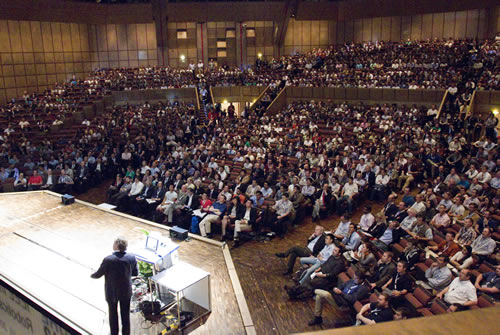
Preliminary Agenda
1. Welcome and Opening Remarks – Torsten Kroeger
2. Conference Committee Roles and Responsibilities – Torsten Kroeger/ Karinne Ramirez Amaro
3. Getting Started (Requesting Sponsorship & Conference Application) – Helge Wurdemann
4. Conference Publications/Video Capture – Zhidong Wang
5. Managing a Technical Program – Seth Hutchinson
6. Conference Finance (Budgeting through Conference Closing) – Venkat Krovi/ Helge Wurdemann
7. Event Logistics Planning and Execution – Lukrecija LeLong / Torsten Kroeger
8. Working with IEEE Meetings, Conferences & Events – Lukrecija LeLong
Space is limited, so we encourage you to register as soon as your availability is confirmed.
Registration
Please register for this FREE workshop online:
https://app.smartsheet.com/b/form/2d9e465601774246a8826c4f0a823d3c
To register by email or ask questions, please contact: RAS@ieee.org
Call For Participation
Access To Talent Program at ICRA 2018
21-25 May 2018, Brisbane Austrialia

Looking for a job in robotics? Looking to hire top robotics job candidates?
After previous successes at ICRA and IROS, the IEEE Robotics and Automation Society will again be organizing an official Access to Talent Program in conjunction with ICRA 2018. This program is targeted at job seekers and robotics companies of all sizes. It provides an outstanding opportunity for potential employers and potential employees to connect at one of the top robotics conferences in the world.
The program will be of interest to:
Those Seeking Employment Opportunities
Conference attendees (including students) interested in robotics-related employment opportunities may upload their contact information, interests and resum? to a database that will be made available to company recruiters. Interested companies will then have the opportunity to review the database and conduct on-site interviews with you at ICRA!
An outstanding group of companies and organisations have already signed up to participate and will be actively recruiting at the conference! These include:
- Artisense
- Baidu
- CSIRO
- DJI
- KUKA
- Nutonomy
- Uber
Many more are joining as we speak! Don?t wait! Take advantage of this fantastic chance to connect and launch your robotics career! There is no cost to upload your resume to the database. Instructions for uploading your information are included in the registration confirmation email for ICRA 2018.
Recruiting Companies
Companies interested in recruiting at ICRA 2018 will have access to the following resources:
- A searchable resume database of conference attendees interested in robotics-related employment.
- Space for conducting on-site interviews.
- Poster space during the exhibition to advertise the company and its available positions.
More information is available at: https://icra2018.org/access-to-talent-program-at-icra2018/
Email inquires may be directed to: accesstalent@ieee.org
Congratulations and welcome to the following newly organized IEEE Robotics and Automation Society Section and Student Branch Chapters.
Region 1-6
United States
- IEEE Charlotte Section Robotics and Automation Society Chapter
- Clemson University IEEE Robotics and Automation Society Student Branch Chapter in the Piedmont Section
- Michigan State University IEEE Robotics and Automation Society Student Branch Chapter in the Southeastern Michigan Section
- IEEE Houston Section Robotics and Automation Society Chapter
Region 8
Norway
- IEEE Norway Section Control Systems and Robotics and Automation Joint Societies Chapter
Tunisia
- ESPRIT (Ecole Supérieure Privée d'Ingénierie et de Technologies) IEEE Robotics and Automation Society Student Branch Chapter in the Tunisia Section
- National School of Computer Science ENSI IEEE Robotics and Automation Society Student Branch Chapter in the Tunisia Section
Turkey
- Balikesir Universitesi IEEE Robotics and Automation Society Student Branch Chapter in the Turkey Section
- İzmir Institute of Technology IEEE Robotics and Automation Society Student Branch Chapter in the Turkey Section
Region 9
Brazil
- Faculdade de Tecnologia Senai Cimatec IEEE Robotics and Automation Society Student Branch Chapter in the Bahia Section
- Fed de Educacao Ciencia e Tec da Paraiba IEEE Robotics and Automation Society Student Branch Chapter in the Bahia Section
- Instituto Federal de Educação, Ciência e Tecnologia da Paraíba (IFPB) IEEE Robotics and Automation Society Student Branch Chapter in the Bahia Section
- Universidade Federal de Santa Maria IEEE Robotics and Automation Society Student Branch Chapter in the South Brazil Section
- Univ Federal Do Rio De Janeiro - UFRJ IEEE Robotics and Automation Society Student Branch Chapter in the Rio De Janeiro Section
Costa Rica
- Inst Tecnologico de Costa Rica - Sede San Carlos IEEE Robotics and Automation Society Student Branch Chapter in the Costa Rica Section
Ecuador
- Universidad Laica Eloy Alfaro de Manabi IEEE Robotics and Automation Society Student Branch Chapter in the Ecuador Section
Region 10
India
- Ahmedabad University IEEE Robotics and Automation Society Student Branch Chapter in the Gujarat Section
- College of Engineering - Karunagappally IEEE Robotics and Automation Society Student Branch Chapter in the Kerala Section
- G L Bajaj Institute of Technology and Management-Greater Noida IEEE Robotics and Automation Society Student Branch Chapter in the Delhi Section
- Government Engineering College - Barton Hill IEEE Robotics and Automation Society Student Branch Chapter in the Kerala Section
- Muffakham Jah College of Engineering & Technology IEEE Robotics and Automation Society Student Branch Chapter in the Hyderabad Section
- Panimalar Engineering College-Chennai IEEE Robotics and Automation Society Student Branch Chapter in the Madras Section
- S J C Institute of Technology/Bangalore University IEEE Robotics and Automation Society Student Branch Chapter in the Bangalore Section
- Vellore Institute of Technology - Chennai IEEE Robotics and Automation Society Student Branch Chapter in the Madras Section
Pakistan
- University of Lahore IEEE Robotics and Automation Society Student Branch Chapter in the Lahore Section
• To be eligible for application or nomination, candidates must:
• Be engineers, scientists, educators, technical executives, or originators in IEEE-designated fields
• Have experience reflecting professional maturity
• Have been in professional practice for at least ten years (with some credit for certain degrees)
• Show significant performance over a period of at least five of their years in professional practice
Nominees for IEEE Fellow must hold the grade of Senior Member or Life Senior Member in order to qualify for elevation to Fellow status.
| Turki Abdalla Iraq Section University of Basrah |
Yasar Ayaz Islamabad Section National University of Sciences and Technology (NUST) |
Alexandre Bernardino Portugal Section Instituto Superior Técnico |
| Dominik Bösl Germany Section KUKA AG |
Girish Chowdhary Central Illinois Section University of Illinois at Urbana–Champaign |
Francisco Chumbiauca Palouse Section Schweitzer Engineering Laboratories (SEL) |
| Prithviraj Dasgupta Nebraska Section University of Nebraska |
Elena De Momi Italy Section Politecnico di Milano |
Dimos Dimarogonas Sweden Section KTH Royal Institute of Technology |
| John Dolan Pittsburgh Section Carnegie Mellon University |
Stanley Frady Western North Carolina Section Eaton |
Juan Garcia Spain Section University of Alcalá |
| David Gomez-Gutierrez Guadalajara Section Intel Corporation |
Jeffrey Krichmar Orange County Section University of California, Irvine |
Venkat Krovi Piedmont Section Clemson University |
| Jinoh Lee Italy Section Istituto Italiano di Tecnologia |
Ming-Yih Lee Taipei Section Chang Gung University |
Xiongbiao Luo London Section The University of Western Ontario |
| Alessandro Macchelli Italy Section Università di Bologna |
Alessandro Marino Italy Section Università di Salerno |
Arifuddin Mohammed Hyderabad Section Muffakham Jah College of Engineering & Technology |
| Katsumi Moriwaki Nagoya Section Daido University |
Christian Ott Germany Section |
Mike Paulin New Zealand South Section University of Otago |
| Daniel Sangines Florida West Coast Section |
Mohan Satyaranjan Bangalore Section |
Yajing Shen Hong Kong Section University of Hong Kong |
| Jie Song Beijing Section Peking University |
Ganesh Subramanian Madras Section Panimalar Institute of Technology |
Yi Sun Southeastern Michigan Section FANUC America Corporation |
| Lawrence Tessari Southeastern Michigan Section |
Emir Vela Peru Section Universidad Peruana Cayetano Heredia |
Huihui Wang Jacksonville Section Jacksonville University |
| Zhan Yang Nanjing Section Soochow University |
Da-Jeng Yao Taipei Section National Tsing Hua University |
Xuebo Zhang Beijing Section Nankai Univeristy |
| Yu Zheng Southeastern Michigan Section University of Michigan-Dearborn |
Each year, the IEEE Robotics & Automation Society offers financial support for three Technical Education Programs (RAS-TEP), also known as "Summer Schools." In an effort to bring RAS closer to its membership, three programs are held each year: one in the Americas, one in Europe/MiddleEast/Africa, and one in Asia/Pacific Rim.
The RAS-TEP program is jointly run by the RAS Member Activities Board (MAB) and the RAS Technical Activities Board (TAB). These Boards will review proposals and select the TEP programs each year. The program sponsors up to three schools per year around the world. Each of the three Technical Education Programs (Summer Schools) will receive up to USD$25,000.00 in funding from RAS. Funding should be used to reduce the event cost for RAS Student Members, and to assist in securing high quality instructors.
The review of TEP proposals is based on assessments from two different viewpoints, the first one with respect to the general structure, including organizational matters and budget, and the second one with respect to the technical content. One or more relevant RAS Technical Committees (TCs) must endorse all submitted proposals. Current TCs are listed at: www.ieee-ras.org/technical-committees.
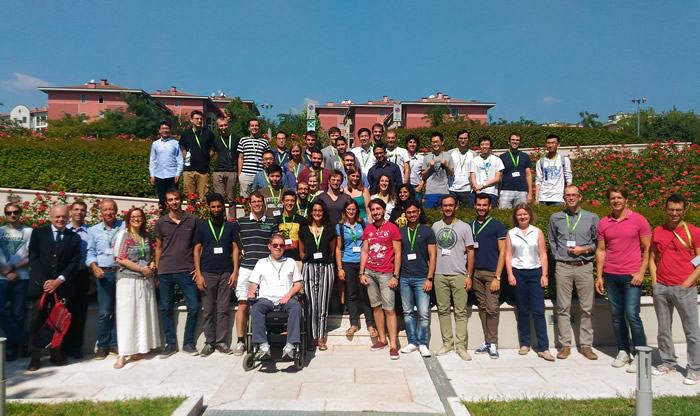
PROPOSAL SUBMISSION
Technical Education Program Proposal - online proposal form
IMPORTANT DATES
Deadlines for the submission of 2019 proposals: 1 May 2018 Deadline Extended to 14 May 2018
Decision: ICRA 2018
Notification: July 2018




